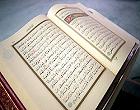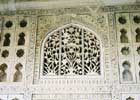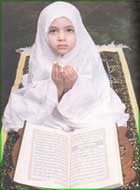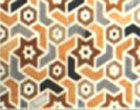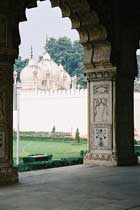Yaum Arafah
The ninth day of Dhul-Hijjah is called Yaum-Arafah. On this day, the Hajj pilgrims stop and stand in
prayers at Arafat which is the most important ritual of Hajj, so much so that Hajj is deemed incomplete
without it. On that day, the pilgrims are engaged in the remembrance of Allah and prayers as that is
their most important worship on that day. For this reason, Saum ( Saum signifies fasting or abstaining
from food and drink and sexual intercourse from dawn until sunset) is not desirable for them, but for
other people, Saum has a special merit. The importance and merit of this Saum can be judged from the fact
that it expiates sins for two consecutive years: the previous year and the current year. But these sins
relate only to the minor sins, not the major ones, or become a means of elevation of one's status.
New year
Islamic New Year (First day of Muharram, 1st month) The new year day of Hijra reminds Muslims the Hijrah
(migration) of the Prophet Muhammad (Peace Be Upon Him) from Makka to Madina in the year 622 C.E. It is
well-known that the Hijra did not take place on the first day of Muharram, it probably occured in the
month of Rabu'ul Awwal (3rd month). Also the Hijri calendar was instituted some time in the reign of
Caliph 'Umar (634-644 C.E.). However, due to the association of Islamic calendar with Hijra, new year
day becomes an important day to remember the meaning and significance of Hijra.Ashoora
Ashoora (10th of Muharram, 1st month) After his arrival in Madinah in the year 623, Prophet Muhammad PBUH
instituted fasting on the 10th of Muharram. A year later this fasting was replaced with the mandaroty
fasting in the month of Ramadhan. However, fasting on 'Ashoora' remined a voluntary fasting. Many
Muslims fast on this day also.
This day is also associated with the martydom of Prophet Muhammad's grandson Husain ibn Ali. He was killed in the battle of Karbala' on the 10th of Muharram in 61 A.H. (October 10, 680 C.E.). It is a day of sadness for all Muslims.
Maulid Nabi
Maulid Nabi (12th of Raby'al-Awwal, 3rd month) This day is remembered as the birthday of the Prophet
Muhammad PBUH. It is a very popular day of celebration. It, probably, began early in the Fatimid Egypt
(beginning of 10th C.E.) where people began distributing sweets and making special chanting and
festivities on this day.There are no special prayers or religious services associated with this day, but many Muslims use this day to talk about the Prophet, his life and examples. They use it as a time to express their love and devotion for Prophet Muhammad. It is now celebrated with varying degrees of enthusiasm throughout the Muslim world and wherever Muslims live. Some people, however, criticize it because it has no sanction in the Qur'an and the Sunnah of the Prophet and the early community did not mark this day with any special festivities.
Isra' and Mi'raj
Isra' and Mi'raj (27th of Rajab, 7th month) Night of journey of Prophet Muhammad (Peace Be Upon Him) from
Makkah to Jerusalem and then his ascension to heavens occured in the year 620 C.E. It is mentioned briefly
in the Qur'an (Surah 17 and 53). The hadith literature gives much more details of this experience of
the Prophet.Muslims remember this day as a day of great miracle and honor of the Prophet Muhammad PBUH. On the eve of 27th of Rajab, gatherings are held in the mosques and homes to remember the event and the whole story is told in peotry, chants, or lectures. Sweets or food are distributed and great happiness and joy is expressed.
There are also no special prayers associated with this night. Muslims remember this day with varying degrees of enthusiasm and devotion. Some people do no celebrate it at all.
Page 2/3



